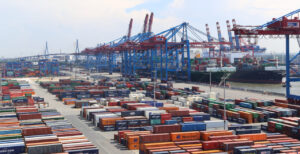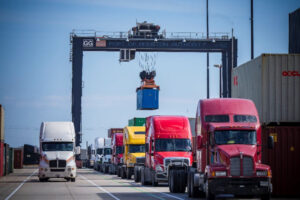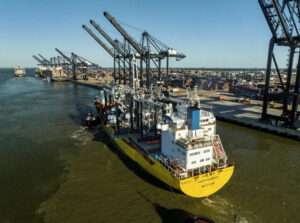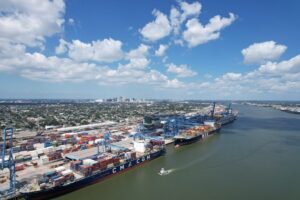Confidence in the shipping industry has fallen to a record low in the three months to February 2016, according to the latest Shipping Confidence Survey from International accountant and Shipping adviser Moore Stephens.
The average confidence level expressed by respondents in the markets in which they operate was 5 on a scale of 1 (low) to 10 (high).
Compared to the 5.6 recorded in November 2015, it is the lowest rating in the life of the survey which was launched in May 2008.
In Asia the levels dropped from 6.0 to 4.4, in Europe from 5.4 to 5.1, and in North America from 5.7 to 4.7.
Technical paper: Huge Overcapacity: In Absence of Demand
One respondent said: “Newbuilding deliveries for 2016 will increase the total fleet by 10.5%, 7% of the current fleet is older than 20 years, and cargo volumes in 2015 were just 4.5% higher than in 2014, so the expected available fleet per metric ton of dry cargo available will be higher at the end of 2016 than it is now. As a result, there is no chance of freight levels improving.”
Another respondent said: “There are too many players, too many operators, and too many vessels chasing too few cargoes. Most fixtures are concluded merely to keep the banks happy in the belief that some tiny amount of cash flow is coming in.”
Richard Greiner, a Partner with Moore Stephens, said:: “Shipping continued along its volatile course in the three months to end-February 2016, with the confidence of industry participants reaching the lowest level since our survey was launched in May 2008. This is disappointing and unsurprising in equal measure.
“When the Baltic Dry Index (BDI) drops to an all-time low it is a real indication of the problems facing the shipping industry.
“The BDI doesn’t lie, and any doubts about the extent of those problems would have been dispelled over the past three months when reports of the fall in the BDI started to appear in the mass media, which generally carries only bad news insofar as it impacts the shipping industry.
Read: Baltic Dry Index Hurtles to Record Low
“Most recently, however, there is better news, with the BDI starting to move upwards once more, gaining over 100 points within six weeks of plumbing the depths. Moreover, there is a reasonable expectation that the approaching peak harvest season will bolster demand for ships to carry grain and other commodities on international trade routes.
“This should boost the BDI further and, while shrinking demand for raw materials from China will continue to have an effect, the world will always need shipping to move its trade staples.
“Overcapacity in any industry will inevitably lead to price-cutting and eventually to financial difficulties for the weakest, the least well-prepared, or sometimes simply the unluckiest.
Read: Overcapacity Makes Investors Jump Ship
“The simple answer to overcapacity is to reduce the numbers, but ships are too big to hide and disposing of excess units is more difficult in shipping than in most other industries, particularly when there are record numbers of new cabs just waiting to come off the rank.”
Mr Greiner continued: “Increased ship recycling is one obvious answer, although current low scrap prices mean that fewer numbers of most tonnage types are being recycled.
“In a climate of continuing overcapacity, increased regulation, ongoing political unrest and economic instability, the shipping industry must find a way to supplement the bread-and-butter of its livelihood – the freight markets.
“Reports suggest, however, that more and younger dry bulk vessels are being recycled in spite of weak demolition rates, and contrary to the trend with other categories of tonnage.
Richard Greiner concluded: “In any industry, the price of a service or product must exceed the cost of providing that service or product in order to achieve a return on investment. In shipping, that is simply not happening at present.
“Operating costs are going up while freight rates generally are not even keeping pace. Nobody doubts the ability of shipping to bounce back. It has a long history of doing just that. This time, the only question is when.”








